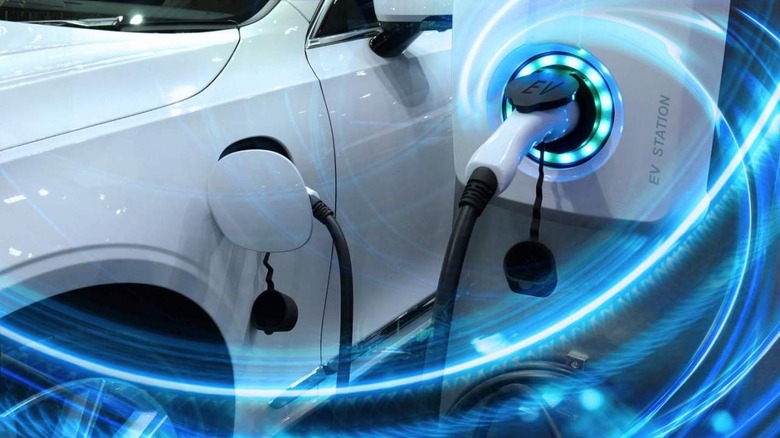Are EVs Truly Better For The Environment?
Electric vehicles (EVs) are all the rage, with virtually every major manufacturer bringing EVs to the market. In fact, some manufacturers, such as Subaru (via Reuters), Volvo (via Nasdaq), and others have committed to EV-only lineups by 2030 or the mid-2030s.
As governments around the world look for ways to combat climate change, EVs have emerged as an obvious method. In fact, in August 2021, US President Joe Biden signed an executive order (via White House) that made it a goal to migrate to "clean and zero-emission vehicles for Federal, State, local, and Tribal government fleets, including vehicles of the United States Postal Service."
With so much impetus behind moving the entire car industry to EVs, some wonder if EVs are really better for the environment than traditional vehicles.
Are EVs Really More Environmentally-Friendly?
The short answer is yes. The long answer is still yes, but with some factors to consider.
There's no disputing that, over the course of its service lifetime, an EV produces fewer emissions than a traditional gasoline vehicle. Unfortunately, there are two additional factors that have to be considered: manufacturing the vehicle and charging it.
Manufacturing EVs is a cost and energy-intensive process. In fact, a study by MIT's Energy Initiative showed that manufacturing a traditional vehicle generates fewer emissions than the battery/fuel production for an EV. As a result, every EV produced begins its life with an emissions deficit compared to a traditional vehicle. Over the course of its life, however, that same EV will produce far fewer emissions, allowing it to eventually overcome its deficit and be better for the environment than a gasoline-powered car.
At the same time, efforts are being made to reduce the cost and environmental impact of producing EVs. For example, Nissan is pioneering technologies that will allow it to recycle up to 98% of the rare-earth elements in an EV's electric motor, instead of the 50% that current methods allow.
The second major factor when considering an EV's environmental impact is the power grid that charges it. Different countries power their electric grid through different means. The same can be said for individual states within the US. Some jurisdictions use cleaner energy than others, meaning an EV's impact on the environment is largely tied to the quality of the power grid that charges it.
"If we are going to take a look at the current situation, in some countries, electric vehicles are better even with the current grid," Sergey Paltsev, a senior research scientist at the MIT Energy Initiative told CNBC.
Needless to say, as power grids transition to cleaner forms of energy, the overall effect will be a reduced carbon footprint for all EVs using that power grid.
Again, there's no denying that EVs are already better for the environment than traditional vehicles. At the same time, their true environmental potential has not yet been reached.

